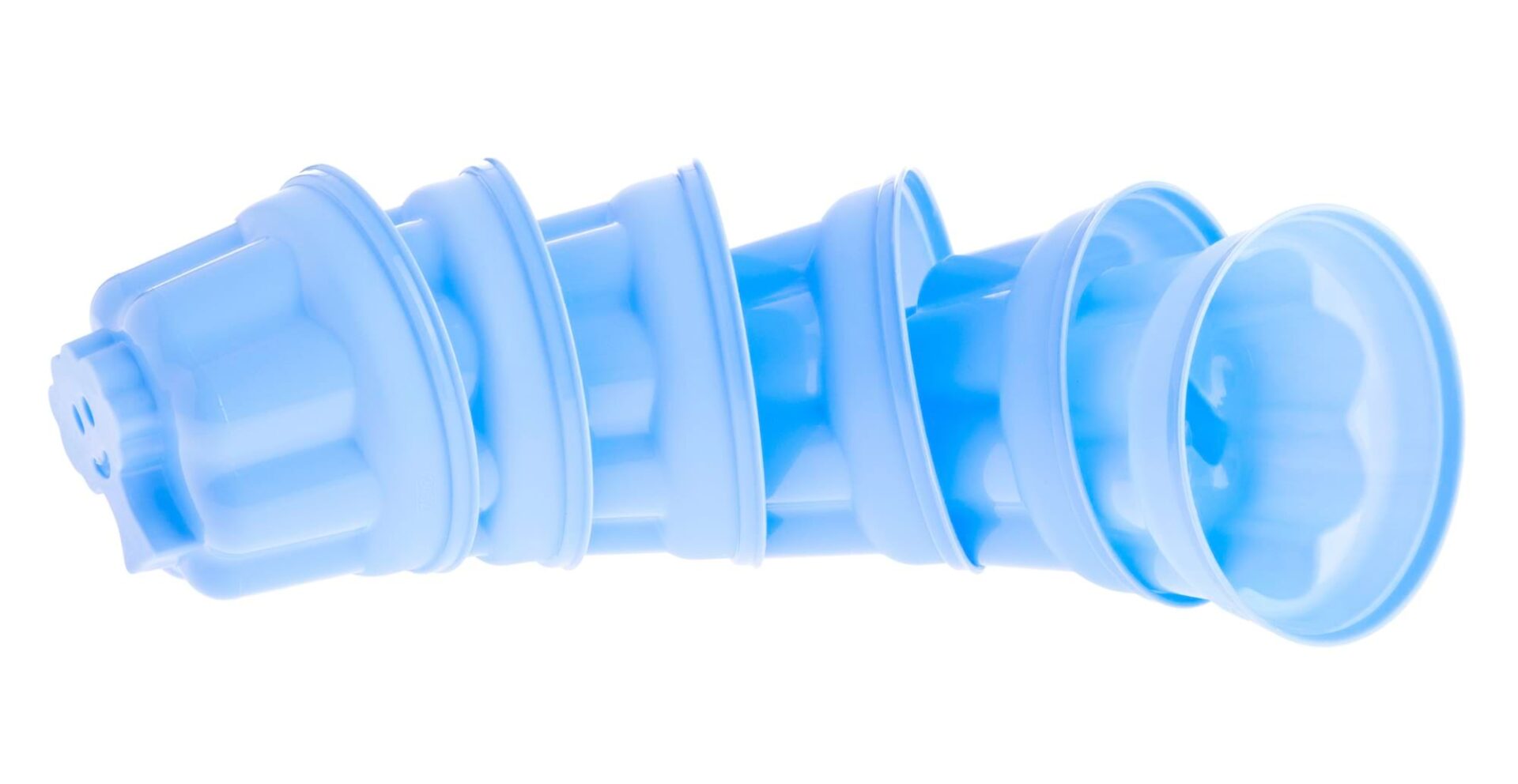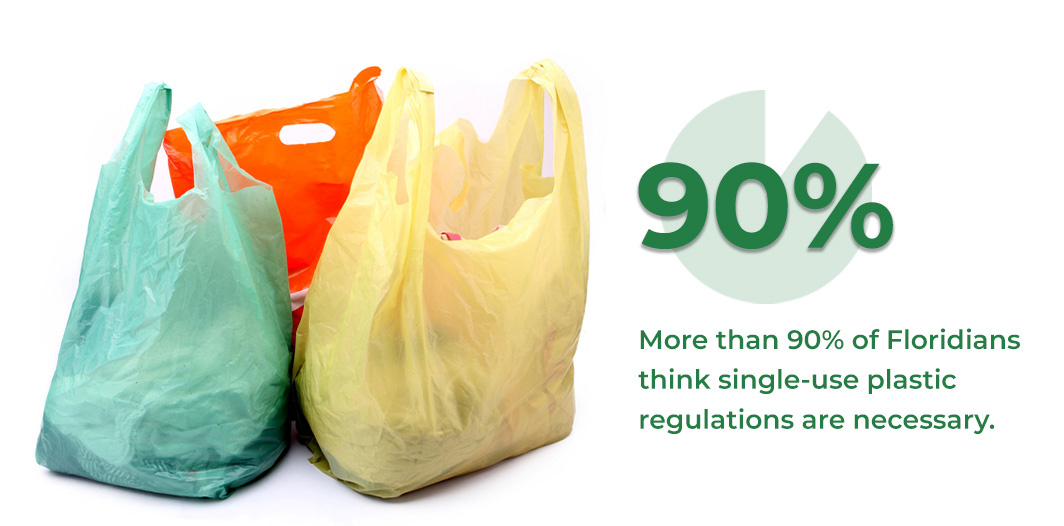St. Petersburg, Florida, Plastic Regulations

St. Petersburg, one of the larger cities in Tampa Bay, is surrounded by 244 miles of shoreline and welcomes thousands of tourists every year to enjoy its beautiful beaches and warm weather. Like many other cities in the area, St. Petersburg must actively manage plastic consumption and disposal to help keep plastics out of the land, rivers, and ocean. Find out more about St. Petersburg’s plastic regulations.
Key Takeaways About the Plastic Problem and Regulations in St. Petersburg
First, let’s look at these crucial facts about single-use plastics and their regulations:
- The state of Florida does not permit local governments to publicly ban various single-use plastics like plastic bags.
- Although St. Petersburg is subject to Florida legislation, the city has public restrictions on plastic straws and regulates Styrofoam on city property.
- Single-use plastic items can pollute our environment for hundreds of years and pose risks to our health.
- Most Floridians believe single-use plastic regulations are called for.
The Single-Use Plastic Problem
Single-use plastics are disposable items that we generally only use once and then throw away—often in mere minutes. Although their usefulness is short-lived, they are not biodegradable and last hundreds of years, overcrowding landfills, polluting our environment, and harming our health.
Some examples of disposable plastic items include:
- Plastic bottles
- Polystyrene (Styrofoam) takeaway containers
- Straws
- Plastic packaging materials
- Plastic cutlery
- Single-use plastic bags
Only a small amount of single-use plastic is recycled. In fact, many recycling programs do not recycle items like plastic bags and disposable dinnerware (plastic cups, plates, and cutlery).
Is There a St. Petersburg Plastic Ban?
The city has made significant efforts to regulate single-use plastics, proposing various St. Petersburg plastic regulations. However, a preemption bill passed by the state in 2008 nullified these initiatives. The bill prohibits local governments from regulating single-use plastics.
While there is no St. Petersburg plastic bag ban, the preemption bill doesn’t cover plastic items like utensils and straws. St. Petersburg regulates single-use straws by restricting foodservice businesses from offering them to customers. Businesses may only offer straws when customers request them.
The city council also has free reign to regulate single-use plastics on city property. It currently regulates Styrofoam items, including cups, clamshell containers, trays, and more.
In addition to straw and Styrofoam regulations, the city has implemented an aggressive recycling program to help keep plastic out of the environment. However, the program does not recycle plastic straws, Styrofoam, or plastic bags. Residents are encouraged to return plastic bags to grocery stores for recycling.
Community Involvement
Many Tampa Bay citizens, including those living in St. Petersburg, are making the area cleaner and safer by volunteering or donating to organizations like Keep Tampa Bay Beautiful. This organization regularly hosts cleanup events to remove plastic and Styrofoam from the land, rivers, and shoreline.
Cleanup groups across Florida collect hundreds of thousands of pounds of single-use plastics and Styrofoam items every year. Because of this, Florida residents want the government to take legislative action to help mitigate plastic pollution in the area. In fact, more than 90% of Floridians think single-use plastic regulations are necessary.

Find Alternatives to Single-Use Plastics
Greenprint helps combat the plastic problem by offering biodegradable takeout containers, straws, cutlery, and cups to the foodservice industry. Take a look at our products or contact us online to learn more.
References
- https://cms5.revize.com/revize/stpete/Residents/Sustainability/docs/Single-Use%20Plastics%20Toolkit%20_%20Final.pdf
- https://www.keeptampabaybeautiful.org/
- https://environmentamerica.org/florida/articles/new-florida-legislation-would-restrict-local-plastic-bag-bans/
- https://www.theinvadingsea.com/2024/02/05/florida-single-use-plastic-bag-bans-waste-styrofoam-legislature-hb-1641-sb-1126/
